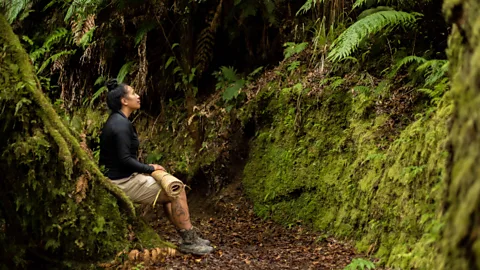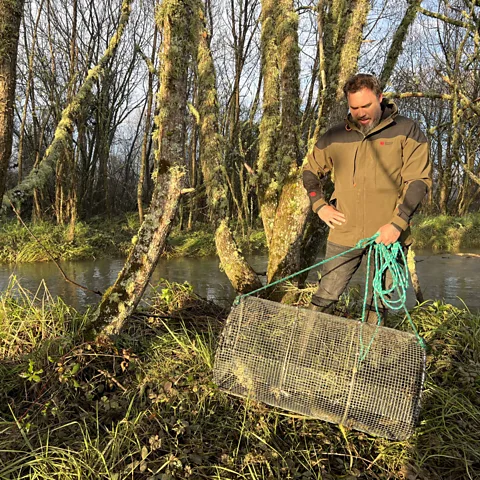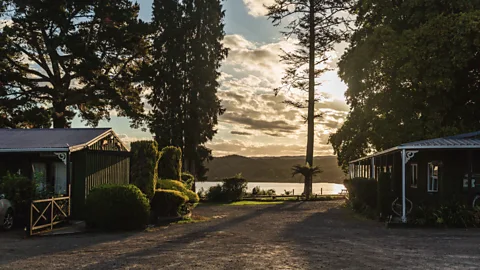Kohutapu Lodge: A model for regenerative tourism in New Zealand
 Cinzia Maioha-Jonathan
Cinzia Maioha-JonathanNew Zealand is emerging as a global leader in regenerative tourism, thanks in part to Māori tour operators such as the Bay of Plenty's Kohutapu Lodge.
First-time tourists to New Zealand often perceive Māori culture as an itinerary item to be ticked-off in an afternoon, usually in Rotorua. The North Island city has been considered the epicentre of cultural tourism since the latter half of the 19th Century, when Māori guides first led British and American tourists to the area's famed geothermal sites.
Centuries later, cruise ships and tour buses continue to shuttle engers directly to "Rotovegas", where polished kapa haka (song and dance) performances come packaged with a hāngī (earth-cooked meal) and a tour of a marae (Māori meeting grounds). Across NZ, this trifecta has long been the blueprint for Indigenous tourism.
But an hour south-east of Rotorua in Murupara – one of the country's most socially and economically disadvantaged communities – a family-owned business is flipping the script. At Kohutapu Lodge and Tribal Tours, tourists get far more than just dinner and a show; they get the opportunity to be immersed in a modern Māori community where there is no stage or costumes.
"We've always just called it 'real people tourism'," said Nadine Toe Toe, co-owner of Kohutapu Lodge. "If you want a show, stay in the main centres. But if you want a day in the life to understand our people, then haere mai whanau: you're welcome to come into our home and our community."
 Jessica Wynne Lockhart
Jessica Wynne LockhartThat's why I didn't ask any questions when Nadine handed me a pair of wellies less than an hour after I checked in. Instead, I followed her partner, Karl Toe Toe, to the edge of a stream, where he held a basket with a funnel-shaped opening at one end. It was empty, save for a rotting fish carcass inside.
"The smell will attract the tuna," explained Karl, using the te reo Māori word for New Zealand's endemic longfin eels, a traditional food source and one of his tribe's most revered animals. He dropped the hīnaki (eel trap) into the water, tying it to a nearby tree.
Learning to eel is just one of the activities available to Kohutapu's guests. They might also find themselves helping the Toe Toes cook a hāngī before packaging it and distributing it to community in need or sitting down for tea with local kaumātua (elders) at the marae.
Accommodation ranges from basic cabins to a plush five-bedroom house, which is where I spent the night. In the morning, I woke to the honk of black swans gliding across Lake Aniwhenua, a narrow body of water created by the dammed Rangitāiki River. On the opposite shore, mist pink with the morning's glow clung low to the perfectly planted rows of radiata pine trees; the legacy of Murupara's forestry industry.
 Cinzia Maioha-Jonathan
Cinzia Maioha-JonathanNgāti Manawa – the area's iwi (tribe) – has resided here, at the base of the Ikawhenua mountain range, for hundreds of years. The surrounding rainforest still bears evidence of this early habitation, with wakas or Māori canoes carved into the rock. But it wasn't until the 1950s that Murupara sprung into existence, built to service the Kaingaroa Logging Company and named for one of the river's sacred eels. The town's residents were employed on the 150,000-hectare pine plantation, the largest in the southern hemisphere.
What makes it regenerative
Based in one of New Zealand's most socially and economically disadvantaged areas, manaakitanga (showing generosity to others) is one of Kohutapu Lodge and Tribal Tour's guiding principles. The Māori-owned tourism business is "changing a town through tourism" and preserving culture by creating employment opportunities.
It was a place of prosperity until the mid-1980s when the New Zealand government began to sell its forests off to private interests. Today, unemployment sits at around 14% – one of the highest rates in the country – and gang violence and substance abuse have both taken root within the predominantly Māori community.
So, in 2013, when the Toe Toes announced they were uprooting their life in Rotorua to return to Karl's tribal lands, a few eyebrows lifted.
"People said to me: 'Are you crazy? You're going to Murupara, of all places">window._taboola = window._taboola || []; _taboola.push({ mode: 'alternating-thumbnails-a', container: 'taboola-below-article', placement: 'Below Article', target_type: 'mix' });
